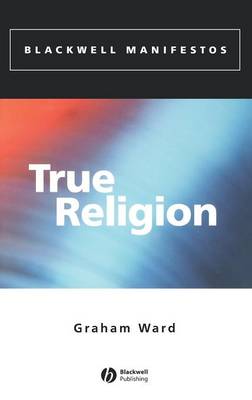Blackwell Manifestos
1 primary work • 2 total works
Book 5
From 'The Holy Land Experience' theme park to the aggressive convictions of the fundamentalist, religion is once more haunting the imagination of the West. But how does what we think of as religion today compare with the 'true religion' of days gone by? Through reference to plays, poetry, painting, novels and films, this manifesto traces the genealogy of 'true religion' in the Western world, charting changes in our understanding of the term from Shakespeare to Salman Rushdie, pointing out how closely linked those changes are to secularism, liberalism and the development of capitalism. On the basis of his cultural analysis, the author makes several paradoxical observations: While the idea of true religion has fashioned our understanding of democracy and liberal humanism, it is also closely bound to imperialism. What we are currently witnessing in Western culture is the disintegration of the concept of 'religion' and yet the reintroduction of religion into the market is a defining characteristic of postmodernity. With the commodification of religion the only viable future for faith traditions is to turn to theology, but that will generate more culture wars.
To resolve culture wars each tradition must both strongly define itself and resist the pressure to turn their own faith into a fetish. The book is guaranteed to excite students and scholars of literature, theology and religion, as well as the general reader.
To resolve culture wars each tradition must both strongly define itself and resist the pressure to turn their own faith into a fetish. The book is guaranteed to excite students and scholars of literature, theology and religion, as well as the general reader.
Through reference to plays, poetry, novels, films and painting, this manifesto traces the genealogy of 'true religion' in the western world and makes six controversial claims about the past, present and future of religion. * Traces a transformation in the way religion is understood and performed in the western world. * Makes several major claims about the past, present and future of true religion. * Uses cultural metaphors as ways into understanding religion. * Refers to plays, poetry, novels, paintings and films, including Romeo and Juliet, Moby Dick, The Exorcist and Stigmata. * Suggests that the end of wars between nations could result in a return of wars of faith. * Part of the prestigious Blackwell Manifestos series.

